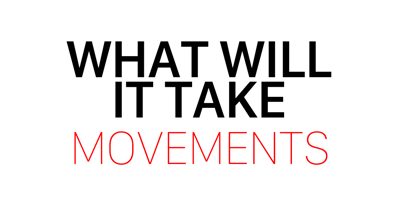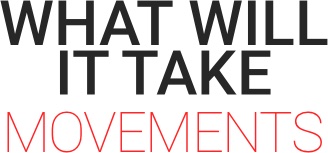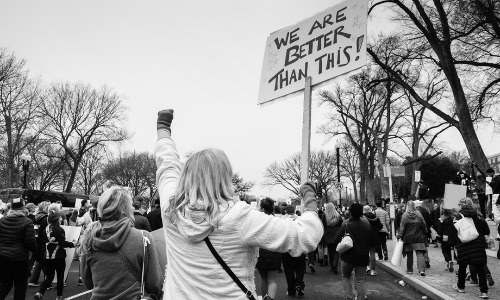The Problem
AT THE CURRENT PACE OF CHANGE, IT WILL TAKE 80+ YEARS TO ACHIEVE GENDER PARITY IN ECONOMIC PARTICIPATION (UN WOMEN) AND OVER 100+ YEARS IN POLITICAL LEADERSHIP (IWPR 2015).
Political Divide:
- Women make up only 27.9% of Congress (women of color 11%)
- Only 12 out of 50 governors are women
- Globally, women make up about 50% of the population, but make up only 26.4% of national parliaments
- The U.S. ranks approximately 70th in the world in the percentage of women in the national legislature
Business and Corporate Leadership Divide:
- Only 30% of board seats are held by women, and women of color are nearly invisible on S&P 500 boards
- Women’s share of the total labor force is 47% (after peaking at 60% in 1999)
- Women make up 7% of CEOs despite holding 52% of management, professional and related positions
- Women currently hold only 37 CEO positions at S&P 500 companies
Pay Divide:
- Women generally earn 83 cents for every dollar men earn. The pay gap is even worse for women of color: Black women 64 cents, Latinas 55 cents
- In fact, women on average will need to work more than 100 additional days each year just to catch up to the earnings of men
- Women are less than 10% of top earners in the S&P 500
Representation:
- While women are almost half of the US labor force, they make up only 7% of CEOs and less than 10% of top earners in the S&P 500
- Women occupy only slightly more than a quarter of the top media executive officer positions at news companies worldwide
- Women business owners get nearly 50% less in funding than their male counterparts
IF THERE EVER WAS A TIME THAT NEEDED MORE WOMEN LEADERS IN ALL LEVELS OF PUBLIC LIFE AND BRING THE VOICES AND MOVEMENTS TOGETHER IT IS NOW
Why It Matters
Above, we include some sobering statistics about how low the percentages of women in leadership positions are in this country—in politics, corporations, businesses, media, and more. At What Will It Take, we aim to provide information and resources to help women reach parity and increase these numbers so that women have equal representation in all levels of private and public life.
Why are we advocating for this? Aside from the obvious reason that women are over 50 percent of the population and therefore deserve to have 50 percent representation, the reason it matters is that we ALL would benefit from a more diverse and reflective democracy and society.
It has been proven that the more diverse a group, the stronger that group will be, because each individual brings to the table their own unique background, perspectives, skills, knowledge, and experiences. This leads to more expansive and inclusive dialogue, collaboration and problem-solving. And I am sure we would all agree that there are so many serious problems we face in this country and the world right now and we need women’s voices, visions and perspectives—as well as those of other underrepresented groups and marginalized voices—in order to arrive at the best solutions that benefit all of us.
For my book, What Will It Take to Make a Woman President? I had the opportunity to ask a diversity of thought leaders and public figures to tell me in their own words why having gender diversity in leadership is so important. Here are just a few of the things they had to say (the full interviews are available in the book):
“There is very solid evidence that more diverse groups come up with better decisions, and people who study decision making have typically found that the group that comes out with the most optimal results is not the group containing the most optimal individuals, but rather the most diverse individuals.
I think that if we don’t have gender diversity at the top of American politics and in corporate boards, then we’re just going to get weaker decisions, and I think that’s what we’ve been stuck with…. [Women] bring a certain level of different perspective, a different way of thinking, and that is just really valuable for all of us. This is not something that is just going to benefit the women of America; it’s something that’s going to benefit all of America.”
—Nicholas Kristof—
Journalist, Author of Half the Sky
“It’s about equality, but it’s not just about equality. The reason it’s necessary to have more voices is because that strengthens the debate and it strengthens the decisions. It isn’t that women coming in are better than men; they’re different from men. And I always say the beauty is in the mix. To have diversity of opinion in the debate strengthens the outcome and you get a better result.”
—Nancy Pelosi—
Speaker of the House of Representatives
“[Women] broaden the information that goes into decision making. I think people tend to connect with and bring into their own circles people who are like them, so by bringing in one person, you are more likely to bring additional women’s voices into the decision-making process, and that’s going to be better for everyone if the perspective is broadened. I think we’ve got so many complex issues that cannot be resolved by looking at them from one perspective. And ultimately, allowing more women in will help make better decisions if, in fact, those women are powerful and in tune with and connected with other women’s voices, and perhaps voices of people who have been left out of the conversation, including people of color.”
—Anita Hill—
Attorney, University Professor
“There’s been a lot written about what the world would be like with more women [leaders]. My view is that if all the players play, that creates more competition, and more records get broken. I just think we would perform better as a society. Plus, I want to live in a more equal world.”
—Sheryl Sandberg—
Facebook COO
“There’s been a lot of research into how men and women lead differently—research that tells you women are more collaborative, and I’ve read a bunch of that. But what I think is more powerful is you come from this outsider perspective, so when you take your seat at the table you don’t necessarily ask all the same questions that other people would. You don’t necessarily bring with you all the same people that other people would. You bring a different perspective, a different background.”
—Soledad O’Brien—
Journalist, CEO Starfish Media
“It’s probable that walking around female for twenty years or fifty years in this culture has given someone a set of experiences that men don’t necessarily have—in the same way that walking around as a black person or a Hispanic person or a gay person gives people a different set of experiences than a white, heterosexual person. Experience is everything. Somebody who has experienced something is more expert at it than the experts. We need politicians who look like the country.”
—Gloria Steinem—
Feminist Icon, Writer, Cofounder of Women’s Media Center
“Women are not sufficiently part of the decision-making fabric of this country—whether in Congress, state governments, corporate boardrooms, or corner suites, there are not enough women’s voices being heard. I believe if we are going to grow our economy and really create a competitive environment against other nations, we need women as part of that effort. Until women are able to achieve their potential, America will not achieve hers.”
—Kirsten Gillibrand—
New York Senator, Founder of Off the Sidelines
“Pretty much all studies have shown that if you have diversity in leadership, whether it be men, women, African American, Latino—all of those combinations—the more diversity you have in decision-making, the better the decision. If it’s all a bunch of white men that think alike, then you’re not going to have broad analysis or broad possibilities of different ways to approach things. If you have diverse people in the discussion, you’re going to have diverse points of view about how to resolve your issues or how to move forward.”
—Jody Williams—
Nobel Peace Laureate, Political Activist
“Diversity comes people that are forming new connections, making new distinctions—and it comes from people from different walks of life, sharing their unique experiences and perspectives. Women bring, frankly, likely so much more to the table.”
—Gavin Newsom—
Governor of California
“One gender throughout most of our history has had power, so there’s little wonder that when we think of power, we think about it in one-gender terms. So we need to change that, and we can only change that by changing the people who have power. A new power paradigm emerges when a different gender holds it, has it, and then uses it differently. I mean, if women get power only to be just like the guys who had it before them, then that’s not progress.”
—Pat Mitchell—
Media Executive, Producer, Curator of TEDWomen
“From the point of view of my generation, I think visibility is so important in inspiring future generations of leaders. If we don’t see female politicians out there, and we don’t see them in equal numbers to men, then going into politics, or leadership in general, doesn’t seem like a viable option for us.”
—Julie Zeilinger—
Writer, Founder of the feminist blog The F Bomb
“Leadership in the future, whether it’s male or female, I believe will start to come from a place of the idea of this great experiment called democracy . . . and to do that, we have to have it inside ourselves to know not to fear any diversity, but to be able to coexist with everything and anything, and that’s where power and strength for communities and our country comes from.”
—Melissa Etheridge—
Singer-Songwriter, Activist


